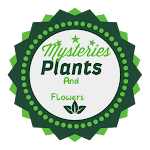Onions (Allium cepa) are more than just a kitchen staple that makes us cry. This humble bulb boasts a pungent past, surprising health benefits (when prepared correctly), and a surprising level of global significance. Let's delve deeper and explore 20 fascinating facts about the onion:
1. Ancient Origins: Onions have been cultivated for over 5,000 years, with evidence tracing their roots back to Central Asia. Imagine ancient civilizations incorporating onions into their culinary traditions.
2. Tearful Trickery: Chopping onions releases a gas (sulfenic acid) that reacts with moisture in our eyes, creating sulfuric acid. This triggers the tear reflex to flush out the irritant. Sharp knives and cool environments minimize this effect.
3. A Nutritional Powerhouse (Cooked): Onions are low in calories but rich in vitamins C, B6, and manganese. They also contain fiber and antioxidants. However, some beneficial sulfur compounds can irritate the stomach raw. Cooking mellows them, making cooked onions a healthier choice.
4. Folkloric Friend (With Caution): Onions have a long history in traditional medicine for treating wounds, coughs, and other ailments. While some potential benefits are being explored scientifically, consult a doctor before using onions for any health concerns.
5. More Than a Bulb: The green shoots (scallions) are delicious in salads and stir-fries. The flowering stalk, with tiny purple flowers, is even edible and can be pickled or used in salads.
6. Symbolic Significance: In ancient Egypt, onions symbolized both mourning and rebirth due to their concentric circles resembling the rings of eternity.
7. A Rainbow of Varieties: Onions come in a surprising array, each offering unique flavors: * Yellow onions: Mild and sweet, perfect for caramelizing. * Red onions: Sharp and pungent, ideal for salads. * White onions: Mild and slightly sweet, good for sauces and salsas. * Green onions: Delicate flavor, best enjoyed fresh.
8. Beyond the Kitchen: Onion juice can be used as a natural dye or cleaning agent. Hollowed-out cores can even become makeshift candleholders.
9. Sustainable Superstar: Onions are low-maintenance, requiring minimal water and thriving in various climates, making them a sustainable crop choice.
10. Aromatic Ally: Studies suggest inhaling onion fumes might offer temporary relief from nasal congestion.
-
Fiery Folklore: Some cultures believe hanging onions in the home wards off evil spirits or illness.
-
Olympic Flame: During the ancient Greek Olympics, athletes rubbed themselves with onions to improve circulation and performance.
-
World Record Onion: The heaviest onion ever grown weighed in at a whopping 10 pounds 14 ounces!
-
Pythagorean Disdain: Legend has it that Pythagoras, the ancient Greek mathematician, disliked the strong smell and spherical shape of onions, possibly due to their association with mystery cults.
-
Space Traveler: Onions were included in experiments on growing food in space due to their hardiness and potential health benefits for astronauts.
-
Egyptian Treasure: Onions were so valuable in ancient Egypt that they were sometimes used as currency to pay workers.
-
Culinary Canvas: Onions are a key ingredient in French onion soup, Indian curries, Japanese ramen, and countless other dishes worldwide.
-
French Twist: The French phrase "pleurer comme un oignon" ("to cry like an onion") is a humorous way to describe someone weeping uncontrollably.
-
Onion Festivals: Several countries celebrate onion festivals, highlighting the cultural and economic significance of this versatile vegetable.
-
Future Potential: Research is ongoing to explore the potential of onion extracts for various applications, including pest control and wound healing.
Onions are more than just tear-inducing bulbs. They offer a rich history, surprising health benefits (when cooked), and a surprising level of global significance. From their ancient origins to their modern-day uses, onions continue to be a fascinating and versatile plant.




